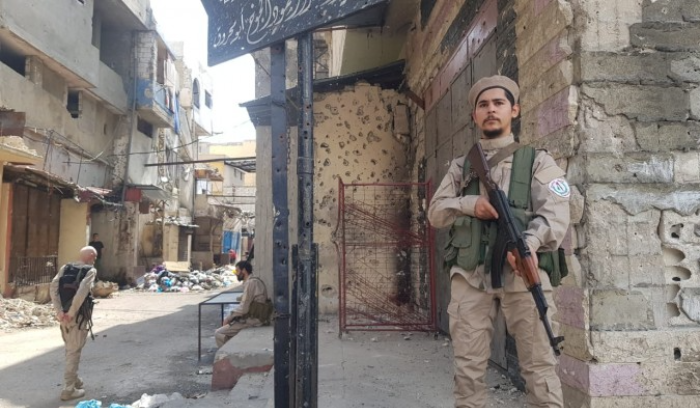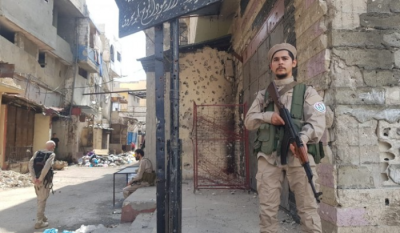Political and security communications between Lebanese and Palestinian authorities have not ceased in an effort to defuse the tense security situation in Ain al-Hilweh, the largest Palestinian camp in Lebanon (Saida), following the assassination of Palestinian National Security member Yassin Aqel. This incident triggered an unprecedented military mobilization by Fatah, which demanded the handover of the suspect, a Palestinian Islamic activist named Muhammad Jamal Hamad.
The assassination has pushed Ain al-Hilweh back to a precarious state of security, reminiscent of the instability it faced following the armed clash between Fatah and Islamic activists on July 30, 2023, which occurred after the assassination of Palestinian National Security commander in the Saida area, Major General Abu Ashraf al-Armawshi, and his companions. The repercussions of this earlier event lasted several months until Fatah decided to dismantle armed displays, checkpoints, and resume normal traffic after the October 7 operation "Flood of Al-Aqsa."
Palestinian sources have expressed a high level of concern regarding the timing of the assassination. They stated to "Al-Rai" that escalating the security situation in the Palestinian diaspora's capital at this particular moment aims to disturb both the Palestinian and Lebanese arenas amidst military escalations on the southern Lebanese front and threats from Israeli officials of large-scale aggression against Lebanon, in addition to the ongoing war in Gaza and the ongoing devastation.
Notably, the assassination occurred shortly after media attention was drawn to the Popular Front for the Liberation of Palestine - General Command, led by Ahmed Jibril, allegedly vacating its military site in Naameh - Shouf Coast. This report was confirmed as false by its representative in Lebanon, Ghazi Dabbour Abu Kifah, who clarified that it involved clearing a civilian road for easier movement. Palestinian sources interpreted this event as an attempt to redirect attention to the Palestinian arms situation in Lebanon, similar to the assassination of Aqel in Ain al-Hilweh.
While Aqel's family refused to bury him, Fatah mobilized its members across all military sites to pressure the suspect Hamad's surrender, resulting in a frantic race between efforts for de-escalation and potential outbreak. The political leadership of national and Islamic forces in the Saida area held an emergency meeting at al-Nour Center, agreeing on the need for his surrender, despite his family requesting more time.
Meanwhile, the Muslim Youth Gathering denied any involvement in the incident, stating in a release that they neither approved nor accepted it and firmly reject it, classifying it as an individual incident. They expressed readiness to cooperate with authorities to reach a solution that pleases God.
The camp witnessed limited tensions, with gunfire in the air and a grenade thrown in protest. Fatah closed main roads at Ain al-Hilweh's entrances to vehicle traffic and around the emergency areas, while shops in the upper street shuttered, and the vegetable market was deserted, as many families fled in fear of any security developments, according to "Al-Rai" from Kuwait.




